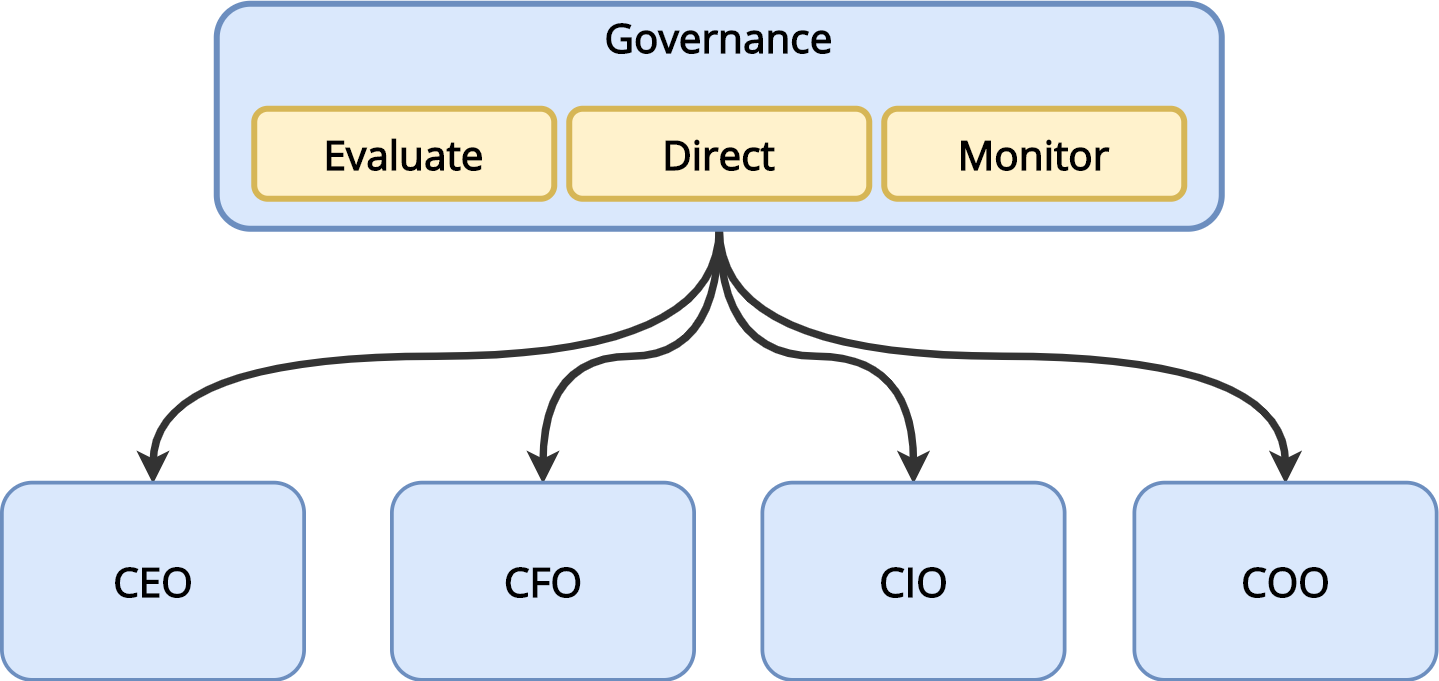Every organization is directed by a governing body, i.e. a person or group of people who are accountable at the highest level for the performance and compliance of the organization. All sizes and types of organization perform governance activities; the governing body may be a board of directors or executive managers who take on a separate governance role when they are performing governance activities. The governing body is accountable for the organization’s compliance with policies and any external regulations.
Governance is realized through the following activities:
Evaluate
The evaluation of the organization, its strategy, portfolios, and relationships with other parties. The governing body evaluates the organization on a regular basis as stakeholders’ needs and external circumstances evolve.
Direct
The governing body assigns responsibility for, and directs the preparation and implementation of, organizational strategy and policies. Strategies set the direction and prioritization for organizational activity, future investment, etc. Policies establish the requirements for behaviour across the organization and, where relevant, suppliers, partners, and other stakeholders.
Monitor
The governing body monitors the performance of the organization and its practices, products, and services. The purpose of this is to ensure that performance is in accordance with policies and direction.
Governance in the service value system (SVS)
- The service value chain must work in line with governing bodies’ direction
- The organizations practices must work in line with governing bodies’ direction
- Governing body must maintain oversight of the SVS
- Both governing body and management at all levels maintain alignment through shared principles & objectives
- Continuous improvement is constantly applied to meet exceptions of stakeholders
 MooMetric.com Integrating marketing and business metrics using code and non code solutions.
MooMetric.com Integrating marketing and business metrics using code and non code solutions.


